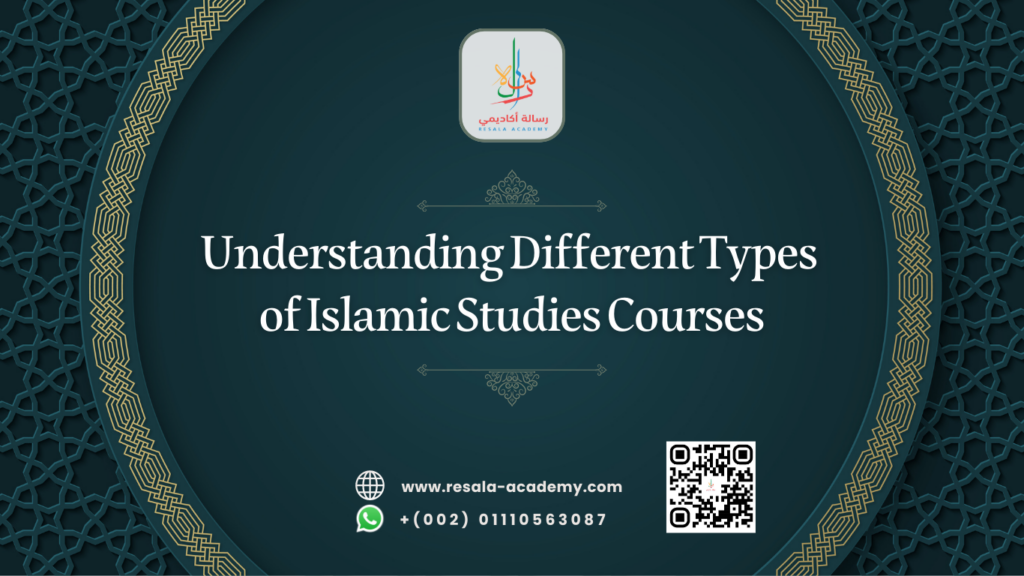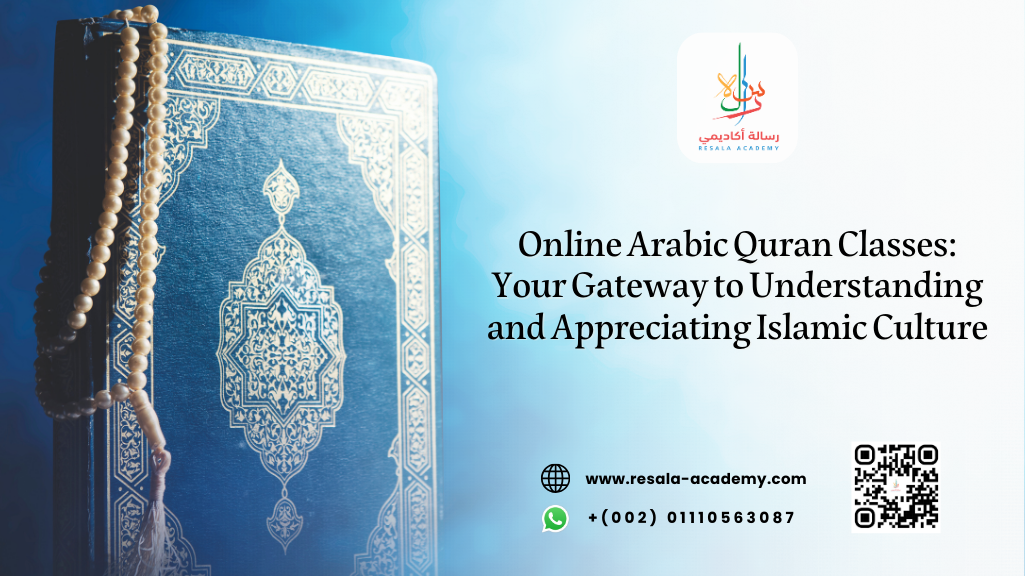Table of Contents
Understanding Different Types of Islamic Studies Courses
Are you interested in learning more about Islamic Studies? Do you want to explore the different types of courses available and find a path that resonates with your spiritual journey? Understanding the various types of courses available for those pursuing Islamic studies is essential for selecting one that fits best. From introductory classes to advanced theoretical seminars, there is something out there to help deepen your understanding of Islam and its teachings. In this blog post, we’ll provide an overview of the many different Islamic Studies courses around the world, so you can make an informed decision when deciding on your next steps in learning about this important topic.
Introducing Islamic Studies and Its Different Branches
Islamic Studies is a multi-disciplinary field of study that examines the beliefs, practices, and culture of Muslims. It encompasses a wide range of topics related to religion, history, politics, social sciences, language, literature, art, and architecture. Islamic studies involve the analysis of primary sources such as the Qur’an and Hadith (sayings of Prophet Muhammad) as well as the scholarly works produced by Islamic scholars. It also includes the study of various aspects of Muslim cultures, societies, and civilizations throughout history.
Islamic Studies is divided into several different branches:
- Qur’anic Studies: The goal of this branch is to understand and interpret the teachings found in the Qur’an. It examines the meaning of Qur’anic verses, their context, and implications as well as the history and development of Islamic law (Sharia).
- Hadith Studies: This branch focuses on understanding and interpreting Prophet Muhammad’s sayings and deeds as narrated in collections of Hadith literature. Islam places great importance on the study of Hadith, as it is seen as a source of guidance and wisdom.
- Islamic Theology: This branch focuses on Islam’s doctrines, beliefs, and philosophy. It examines fundamental concepts such as God, angels, predestination, free will, and the afterlife.
- Islamic Law: This branch studies Islamic legal rulings based on the Qur’an and Hadith. It covers a range of topics such as marriage, inheritance, commercial transactions, punishments, and more.
- Islamic History: This branch studies the history of Islamic civilization from its origins to the present day. It focuses on major events in Muslim history as well as social and cultural trends throughout time.
- Islamic Culture: This branch looks at the cultural aspects of Islam, such as art, literature, music, and architecture. It also examines the formation of social norms in Muslim societies.
- Comparative Religion: This branch is devoted to the study of different religions in comparison to each other and their interactions throughout history. It enables the student to gain a better understanding of different belief systems.
These are just some of the branches of Islamic Studies. Many other areas can be explored, such as Islamic finance, politics, and gender studies. By studying these various fields, we can gain a better understanding of Islam and its impact on our world today.
Islamic Studies is an incredibly rich and diverse field of study, with something to offer everyone. It provides opportunities to explore the beliefs, cultures, and history of Muslims from all around the world. Islamic Studies encourage open-mindedness, critical thinking, and respect for others. It can help us gain a better understanding of our faith as well as the faith of others. Ultimately, this leads to a more tolerant and accepting world for everyone.
It is important to note that Islamic Studies is not limited to Muslims alone; anyone can gain great insight from studying it. The knowledge and skills acquired through Islamic Studies can be applied to many different professions such as education, government, media, business, and more. This makes Islamic Studies an invaluable subject that should be studied by all.
So, if you are looking for a fascinating and rewarding field of study, look no further than Islamic Studies! With its diverse range of topics and its emphasis on critical thinking, it is sure to provide you with valuable knowledge that can benefit your future. So why wait? Start exploring Islamic Studies today!
Exploring the Different Levels of Islamic Studies Courses in bullet points
- Introduction to Islam: the course covers the basics of Islamic beliefs and practices history. It provides an overview of the major branches and schools of thought within Islam as well as its core texts.
- Quranic Studies: Focusing on the Quran (the holy book for Muslims), this course explores its various interpretations, content, language, and structure.
- Islamic Law: This course covers the diverse body of legal reasoning and practice within Islam, including jurisprudence, basic principles, rules of evidence, and legal maxims.
- Hadith Studies: This course focuses on hadiths, which are sayings attributed to the Prophet Muhammad that guide in matters of Islamic law.
- Islamic Philosophy: Exploring the relationship between faith and reason, this course looks at Muslim contributions to philosophy, logic, ethics, and metaphysics.
- Sufism: This course covers the mystical tradition within Islam which emphasizes personal spiritual growth through contemplation, self-discipline, and devotion.
- Islamic Arts and Culture: This course explores Islamic contributions to art, music, literature, and culture throughout history.
- Modern Islamic Thought: Examining contemporary issues in Islam, this course looks at how various traditions within the faith respond to modern challenges like secularism, globalization, and feminism.
- Comparative Religion: This course looks at the similarities and differences between Islam and other major world religions. It also examines how Muslims interact with followers of other faiths.
- Islamic Studies Capstone: This course provides an overview of all the main areas of Islamic studies, including a comprehensive examination of the history, culture, literature, and spirituality of Islam. Students can apply their learning in a final research project.
- Independent Study: This course allows for a self-directed learning experience in which the student chooses a topic of interest and researches it independently, with guidance from the professor. Students can gain advanced knowledge in a particular area of Islamic studies.
- Special Topics Courses: These courses vary from semester to semester but can cover topics such as Islamic finance, political Islam, Islamic spirituality, or Muslim-Christian relations.
- Fieldwork: This course allows students to experience first-hand how Islam is practiced in different parts of the world. Students may participate in religious ceremonies and study local customs.
- Internships: Through an internship, students can gain practical experience in a related field, such as education, media, or non-profit organizations. This is an opportunity to apply Islamic studies knowledge to the real world.
- Advanced Seminars: These are typically taken by advanced students and focus on specialized topics in Islamic Studies. Students conduct independent research and present their findings at the end of the course.
- Graduate Program: For students interested in pursuing higher degrees, a graduate program is available which requires more advanced coursework and independent research projects. The capstone project for this degree is typically a thesis or dissertation.
- Online Courses: Many universities now offer Islamic Studies courses online, allowing individuals to learn from the comfort of their own homes. Online courses can often be more flexible and provide a unique learning experience.
By taking Islamic Studies courses, students can gain an in-depth understanding of this fascinating faith in its various aspects—from its texts and history to its modern culture and philosophy. Through studying the religion and its practices in a scholarly context, students can gain an appreciation for the beauty of Islam and its relevance to contemporary life.
As one of the world’s oldest and largest religions, Islam is a rich source of knowledge and insight that deserves to be studied. Islamic Studies courses provide an invaluable opportunity to explore this tradition in depth and gain a deeper understanding of its complexities.
The rewards for completing an Islamic Studies program can be life-changing, providing students with the knowledge and skills to act as ambassadors for this vibrant faith. Those who complete a degree in Islamic Studies have the potential to inspire others through their teachings and lead meaningful lives full of compassion, understanding, and appreciation for the beauty of Islam.
So, if you’re looking to enrich your knowledge and deepen your understanding of Islamic teachings and culture, consider taking courses in Islamic Studies today! With the right program, you’ll be empowered to make a positive impact on society while gaining invaluable insight into this vibrant religion.
At the end of an Islamic Studies program, students will have developed a comprehensive understanding of Islamic history, culture, and spirituality. They will be able to apply their knowledge in various settings and demonstrate a broad range of skills, such as critical thinking, research, and public speaking. Graduates can pursue careers in education, media, government, and non-profit organizations. As ambassadors of Islam, they can inspire others to appreciate its beauty and importance in today’s world.
Completing an Islamic Studies program will provide you with the knowledge and skills necessary to make a positive contribution to society while deepening your understanding of this fascinating faith. So don’t wait—enroll in an Islamic Studies program today and start your journey towards a life of understanding, compassion, and appreciation for the religion of Islam.
Examining the Benefits of Learning about Islamic Studies
Islamic studies can provide a deeper understanding of the world’s most widely practiced religion. By exploring Islamic texts, practices, and culture, one can have a better appreciation for the diversity of beliefs and customs that make up this vibrant faith. Learning about Islamic studies can lead to greater awareness and better understanding between people of different faiths. It also helps to promote peace and understanding, as those who learn about the faith can appreciate its values and strive for greater mutual respect.
Furthermore, Islamic studies can help students to gain a better understanding of history. Its impact on politics, economics, social relationships, science, art, and literature is vast. People need to have an appreciation for the contributions of Muslims to all these areas and for their continued presence today.
Islamic studies can also provide a better understanding of different cultures and countries. Through its teachings, one can gain an appreciation for customs and values that may otherwise be unfamiliar or misunderstood. This knowledge can help people to feel more connected to different societies around the world, as well as to foster greater understanding between different cultures.
Finally, learning about Islamic studies can open a wide range of career opportunities for students. By having an in-depth knowledge of this faith, one can pursue careers in politics, international relations, education, media, and more. In addition, understanding the intricacies of Islamic beliefs and practices can be very beneficial for those who are interested in working with Muslim communities.
All these benefits highlight the importance of learning about Islamic studies, and how it can help to foster greater understanding, appreciation, and respect between different cultures around the world. Whether one chooses to pursue a career related to it or simply gain knowledge from its teachings, studying Islamic studies can be a rewarding experience.
How to Choose the Right Type of Islamic Studies online course for You
– Consider your goals: Before you choose an Islamic Studies online course, it is important to assess what you are hoping to gain from the course. Depending on the type of Islamic Studies online course you select, there may be a variety of topics covered and objectives for completion. Think about what goals you want to achieve by taking this course so that you can choose the course that is best suited to your needs.
– Research different online courses: Once you know what type of Islamic Studies online course you are looking for, take some time to research different courses available online. Consider the topics and objectives each course covers, as well as any prerequisite knowledge needed to benefit from the material. You should also consider factors such as cost, instructor experience, qualifications, and whether the course is self-paced or has a scheduled timeline. All these factors will help you make an informed decision about which Islamic Studies course to choose.
– Consider learning styles: Different people learn best in different ways. When selecting an Islamic Studies online course, think about how you prefer to learn and select a course that suits your learning style. Some courses are more hands-on, while others may be more theoretical. It’s important to find a course that caters to how you learn so that you can make the most out of the material.
– Think about timing: Depending on your goals, you may want to find an Islamic Studies course that is self-paced or one that follows a set timeline. If you are looking for a course to supplement your existing studies, consider a self-paced course so that you can work at your own pace. If you would like to have more structure and accountability in the learning process, then look for an Islamic Studies online course with a set timeline and specific objectives.
– Ask for recommendations: If you know of someone who has experience with an Islamic Studies online course, ask them for their opinion. Hearing about the experiences of others can help you make an informed decision when selecting your course. You can also research courses by reading reviews or asking questions on forums or social media.
– Talk to instructors: Once you have narrowed down the type, of course, you are looking for, talk to any potential instructors and ask them questions about their qualifications, teaching style, and syllabus. This will give you a good idea as to whether the instructor is a good fit for your learning objectives. It also allows you to get clarification on any topics or objectives that are unclear.
Taking the time to do your research and ask the right questions will help you choose the best Islamic Studies online course for you. With some careful consideration, you can select a course that meets your learning objectives and suits your individual needs.
Pros of Islamic Studies online course and In-Person Learning
- Online Islamic Studies courses are generally more cost-effective than in-person learning, as they don’t require physical resources such as a classroom or instructor travel expenses.
- Online courses provide students with the flexibility to learn at their own pace, without having to worry about keeping up with other classmates.
- Online courses are often more comprehensive and up-to-date than in-person classes due to the availability of current online resources, such as videos, articles, audio lectures, and podcasts.
- The same course material can often be accessed multiple times by different students for review or refresher purposes.
Overall, it is important to consider both the pros and cons of online vs. in-person learning when deciding which format is best for you. While online courses may be more cost-effective and provide more flexibility, in-person learning can offer more personalized attention and immersive experiences. Ultimately, it is important to weigh the benefits of each option before making a decision.
In conclusion, online Islamic Studies courses can be an excellent way to learn from home while also saving money and time. However, students should always consider the pros and cons before deciding which type, of course, is best for them. With careful consideration of both options, students can make an informed decision on which path to pursue when taking Islamic Studies courses.
Resala Academy offers Islamic Studies Online Courses
Resala Academy has courses for all levels, from beginners to advanced students. Throughout the program, students can expect to gain a more comprehensive understanding of the faith and its history. This will enable them to become better Muslims and equip them with the knowledge and understanding of the faith to aid them in their everyday life.
At Resala Academy, we provide students with comprehensive learning courses that encompass every aspect of this vibrant faith. Our courses are designed to provide students with both theoretical and practical knowledge that can be applied to real-life situations. Through our courses, students will understand Islamic history, culture, values, and teachings in-depth. Our academy consists of highly regarded teachers who are passionate about sharing their knowledge with others. With Resala Academy’s Islamic Studies program, you can be sure that you’ll receive an education that is both comprehensive and relevant to today’s world.
So, what are you waiting for? Take the first step towards a life of understanding and appreciation for Islam today! Enroll in Resala Academy’s Islamic Studies program now and start your journey to better understand this fascinating faith. We look forward to having you as a part of our learning community!
FAQ
Q: How can I enroll in an online Islamic Studies course?
A: You can enroll in a course at Resala Academy by clicking on the ‘Enroll’ button. This will take you to our enrollment page where you can select the type of course, payment plan, and other details. Once your enrollment is complete, you will have access to the course materials and can start learning right away.
Q: What types of courses does Resala Academy offer?
A: We offer a variety of Islamic Studies courses including Quranic studies, Hadith studies, Islamic law (Shari’a), Tafseer, and other pertinent topics. We also offer courses in the Arabic language and Islamic philosophy.
Q: Are the courses suitable for all levels of learners?
A: Yes, our courses are designed to provide students with both theoretical and practical knowledge that can be applied to real-life situations. We have courses for beginners to advanced students, so everyone is welcome!
Q: Does Resala Academy provide any assistance or support during the course?
A: Yes, our instructors are available to answer questions and provide guidance throughout the course. We also have a dedicated team of Student Support Coordinators who will be there to help in any way they can.
Q: What if I have difficulty understanding the material?
A: Our instructors are always available to assist you in any way they can. We also provide additional resources such as video lessons, tutorials, and other materials that can help you better understand the concepts covered in our courses. We want all our students to succeed so don’t hesitate to reach out for help.
Conclusion
All in all, Islamic Studies offers a wealth of knowledge and understanding that is beneficial not only to Muslims but to learners of all backgrounds and beliefs. It is ultimately up to the individual to decide which type, of course, will best fit their educational goals, but for those who are committed and passionate about learning more about the Islamic faith, there are many resources available to help make that goal possible. Whether through online courses or in-person study, taking the initiative to further explore this field can have truly rewarding results. Resala Academy offers Islamic Studies online courses that can be taken at any time from anywhere for those looking for flexible learning environments. With such accessible options available, everyone has a chance to broaden their minds and develop deeper cultural insights through this rich tradition of study.




